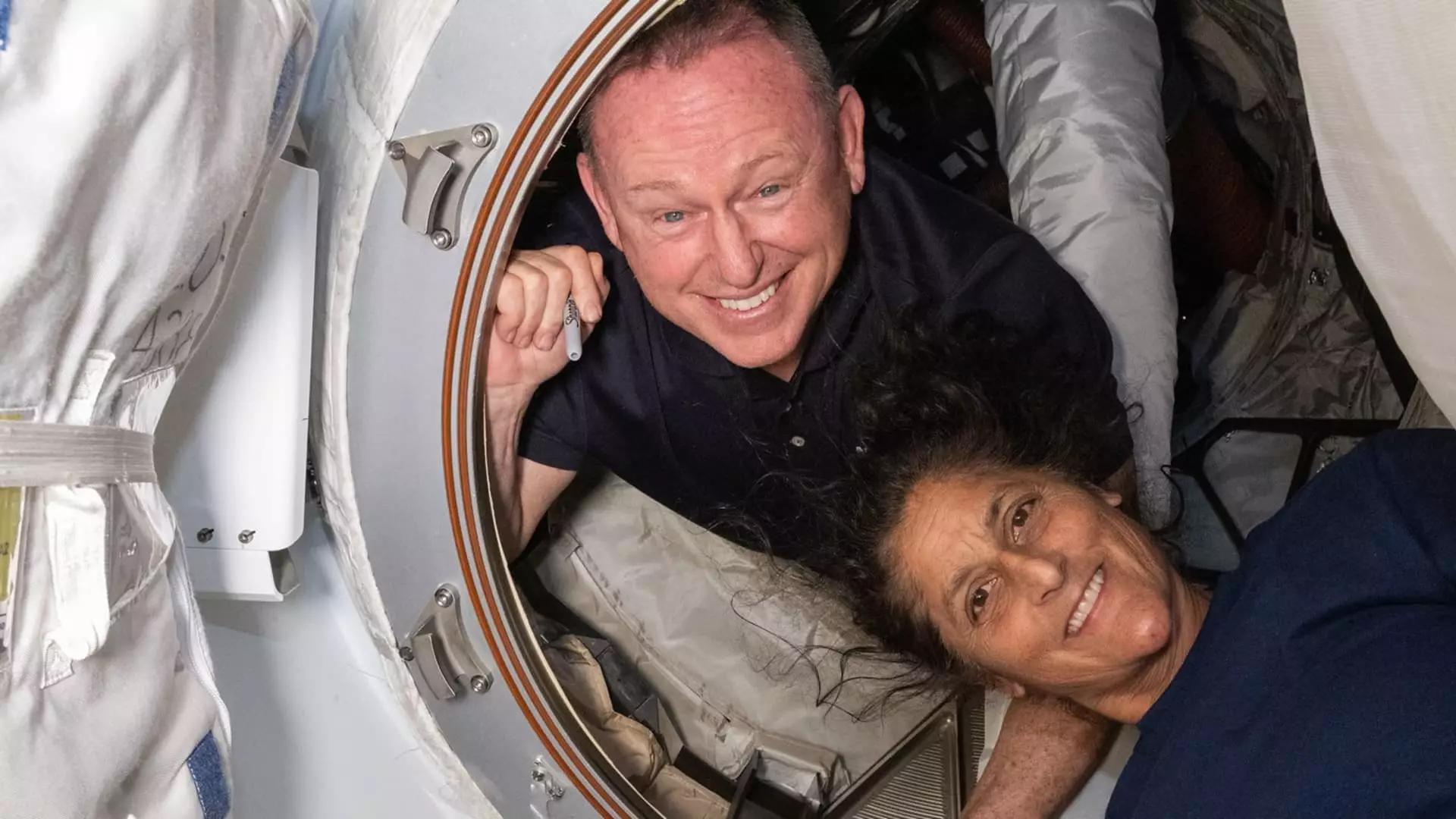The recent saga of the Boeing Starliner spacecraft unravels like a tragicomic play—a combination of ambition and incompetence playing out in the cosmic theater. NASA astronauts Butch Wilmore and Suni Williams, who embarked on what was supposed to be a brief journey to the International Space Station (ISS), found themselves entangled in a narrative that stretches far beyond mere operational failures. Launched in June, the test flight took a dramatically unexpected turn as thruster malfunctions left the pair ‘stranded’ for over nine months. This staggering duration raises glaring questions about the reliability of the spacecraft designed to propel humanity further into the cosmos. With Boeing’s Starliner encountering such severe misadventures, the $2 billion price tag leaves one wondering: Is the investment worth the chaos?
Two Space Giants at War: A Political Football
It’s vital to recognize the role politics plays in shaping the trajectory of space travel. When President Trump stirred the pot by insinuating that the astronauts were “stranded” due to the Biden administration’s policies, a fundamental question surfaces: What does this mean for the future of space exploration? The narrative unfurled as outspoken personalities like Elon Musk became synonymous with the political ambitions entwined in aerospace endeavors. It feels more like an orchestrated chess game than a scientific mission when an entire crew’s destiny becomes a talking point on the political stage. The resonating idea here is shocking; instead of focusing solely on science and exploration, heavy-handed politics now casts a long shadow over the future of space.
Avoiding Further Calamity: NASA’s Pragmatic Shifts
Recognizing the inadequacies of Boeing’s Starliner, NASA pivoted by sending Wilmore and Williams back to Earth aboard a SpaceX Dragon capsule. This decision illustrates the adaptability of NASA, showcasing an agency that is not afraid to make difficult calls in the face of adversity. It’s admirable that NASA can recalibrate its approach in real-time, especially when its legacy hangs in the balance. This proactive thinking helps stem the tide against the disaster that Boeing has wrought with its costly endeavor. However, it also unveils another unsettling truth—should a company in the convoluted throes of incompetence be entrusted with human lives in the first place?
The Mantra of Scientific Rigor vs. Corporate Greed
Amidst the failures of Boeing, a critical theme emerges that mirrors our broader societal issues: the tension between scientific rigor and corporate greed. The Starliner’s plight is symptomatic of a corporate machine that often prioritizes profits over accountability and safety. With over $2 billion lost in their quest to compete with SpaceX, Boeing’s ambitions seem mired in a fog of negligence. Their established reputation has seemingly failed to translate into operational excellence. Shouldn’t the pursuit of space reflect a commitment to humanity’s greater goals rather than a mere rush to keep up with competitors?
The Human Side of Space Travel
Throughout their extended stay at the ISS, both Wilmore and Williams engaged in the daily work that defines human life in microgravity—conducting scientific experiments and performing routine maintenance. Yet, it also cannot be overlooked that their situation is emblematic of the carelessness that can pervade corporate space ventures. Despite their reassurances of not feeling “abandoned,” the emotional toll of an extended, unforeseen separation from family juxtaposes the lofty ideals of space exploration with its stark human realities. Williams’ eagerness to reunite with her dogs resonates with anyone who has felt the pang of absence, proving that, even in the stars, we remain profoundly human.
The intertwining of technical failures, political gamesmanship, and undeniable human emotion in this saga of the Starliner encapsulates a crucial period for modern space exploration. While we cheer for the return of our astronauts, we must grapple with the unsettling truths and critical questions that Boeing’s misadventures reveal, pondering the implications of who truly gets to lead the charge into the future of space exploration.


Leave a Reply